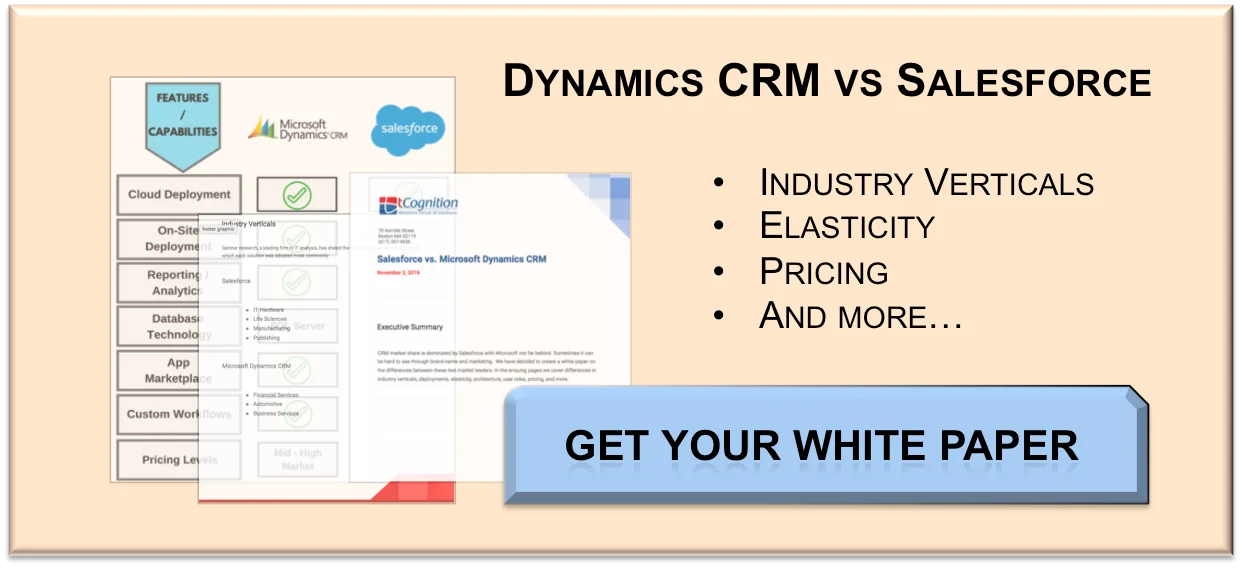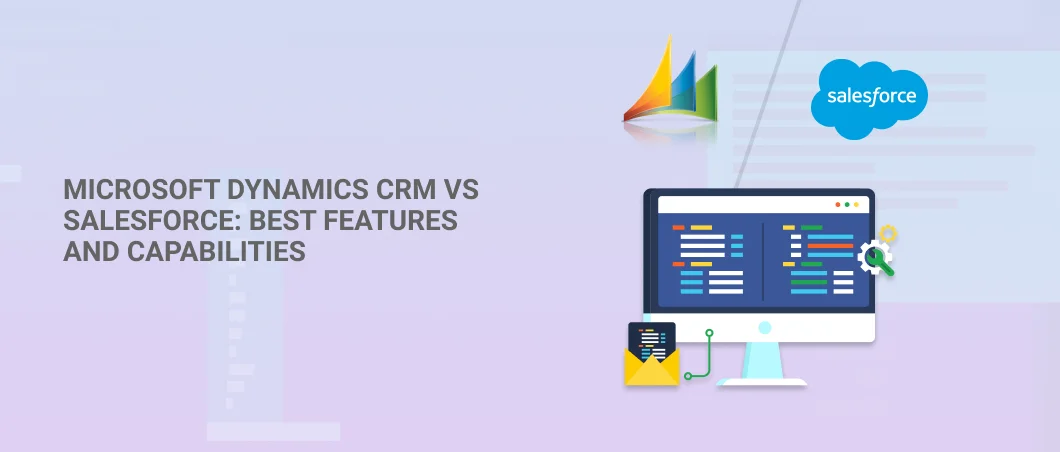While comparing Microsoft Dynamics CRM vs Salesforce, which is not a battle of niche CRM vendors. Salesforce and Microsoft Dynamics are two of the biggest CRM ecosystems in terms of market share. There are not glaring functionality differences between Microsoft Dynamics CRM vs Salesforce. These are both capable and trusted solutions with a full suite of features.
We wanted to create a balanced comparison between the two solutions, in part because we have seen many choose Salesforce for brand recognition alone. For the customer, there will be no silver-bullet answer. It is necessary to make an outline of your current needs, the gaps in your current CRM system, and your future growth plans.
Microsoft Dynamics CRM vs Salesforce Platform Differences
Today, this has less of an impact than it did a few update cycles ago. As Salesforce was developed solely as a SaaS offering, it has in the past functioned better on the cloud than Dynamics CRM has. Dynamics however is available in three different deployment packages: a fully cloud-based edition, privately hosted online, and on-premise.
About Browsers
To this day, Dynamics has some minute limitations unless deployed on Internet Explorer, but Microsoft has gotten better at managing different browsers. This does not mean that every browser is a perfect environment, however.
Salesforce has had a lot of time to integrate with a variety of platforms, and so has an advantage here depending on your business environment. That business environment is a critical factor in choosing which CRM to adopt. Using Microsoft Outlook, the Office suite, Office 365, and so on is common practice. Dynamics CRM has seamless integration with other Microsoft products. Having a centralized CRM in which other software solutions are integrated can increase employee efficiency and reduce frustration. Salesforce does have a plug-in for Outlook integration.
Community Features —Microsoft Dynamics CRM vs Salesforce
Salesforce is the market leader in CRM. This does not mean it is by default the best solution, but it does impart some undeniable benefits.
There is a vibrant developer community on Salesforce’s App Exchange. That community produces a wide array of add-ons and modules for Salesforce. This can translate to quick fixes to a specific problem you might have, or advanced functionality you were not aware you needed.
Microsoft Dynamics CRM does have its own app store. But it simply is not as active as the Salesforce equivalent. Dynamics does have a great boon in terms of interoperability and not as much of a need for add-ons, but that is only if you are already using Microsoft products in tandem.
Database Differences —Microsoft Dynamics CRM vs Salesforce
Whether Salesforce or Dynamics has a better user interface is up for debate. There are, however, more quantifiable differences in back-end architecture and database selection.
Most significant is the difference in database technology. At the time, Salesforce was under development, they chose Oracle. Oracle Database was the most scalable tech at the time.
Dynamics CRM is built on SQL Server (a natural choice as it is a Microsoft product). What this means is that SQL is scalable in terms of enterprise, but not across multiple enterprises (in terms of a single instance).
This means that Dynamics customer databases can be moved from on-premise to cloud. It also means that if a customer decides to migrate from Dynamics, they can receive their full database without a hitch.
Read More: Comparing Oracle Siebel CRM vs Salesforce (2021)


